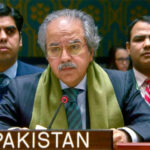AHM Masum Billah: The availability of electricity is one of the most important factors that drive the economic growth of our country. There is a great deal of dependence on power generation and management for the industrial development of the country. With the current government led by Prime Minister Sheikh Hasina in office, short-, mid-and long-term plans have been taken to solve the country’s electricity crisis.
In 2009, the current government adopted the visionary and effective ‘Masterplan 2010’ for the development of the power sector. Due to its proper implementation, the power generation capacity has been increased to about 25,000 MW to fulfil the power demands of all sectors in the country. The government has achieved 100 percent electrification in the Golden Jubilee of Independence and Mujib Centenary.
However, the current world is facing many challenges due to the global crisis caused by various factors. Recently, the conflict between Russia and Ukraine has disrupted energy imports, just like many other nations. In this instance, the government is required to develop various strategies in order to conserve energy.
As a result of the ongoing global crisis, the price of fuel oil and gas have increased so much. In the future, fuel prices are expected to increase further, according to experts. This rise in energy sources has obliged almost all countries around the globe to embrace energy conservation strategies. The financial system of a lot of countries is in a vulnerable state due to the power shortage. Several nations are striving to come to grips with this emergency. The energy predicament has induced these countries to announce an energy emergency.
In response to the volatility in the energy market globally resulting from the Russia-Ukraine conflict, the government has taken certain steps to preserve electricity and energy. Sustainable and Renewable Energy Development Authority (SREDA), under the Power Division, has developed some guidelines to be followed both on an individual and institutional level. We, as citizens, should follow these instructions to avoid wasting electricity and energy.
In the guideline, SREDA has recommended to take full advantage of natural light and to refrain from using lights unnecessarily. Installing lighting systems that are better for the environment, like LED lights instead of incandescent or CFL lights, will result in reduced energy consumption.
The brightness level according to the activities as mentioned in Bangladesh National Building Code (BNBC) should be maintained. Besides, task lighting systems may be used to maintain the prescribed brightness on the office desk.
The guideline also says in the case of using fixtures, casings or reflectors in the lighting system, we should choose colors with high reflection coefficients to increase the brightness of the light. Where possible, installing motion sensor-based lighting systems in shared areas such as stairways, bathrooms, waiting rooms, and hallways can be beneficial in reducing unnecessary electrical consumption.
Besides, it is important to maintain the cleanliness of the lighting system, including the lightbulb, regularly. If there is a build-up of dust on the lightbulb, it can cause a decrease in luminescence. Additionally, to lessen power consumption, it is wise to select the most suitable lighting load depending on the task.
When operating an air conditioner, the temperature should be no lower than 25°C and all doors and windows in the room should remain shut. The filter on the air conditioner must be cleaned regularly, at least once a month, and the air conditioner should be serviced annually for maximum efficiency. Additionally, the thermal insulation system of any pipelines or ducts should be inspected at least once a year, with a check for any potential leakage being done at least once a month.
The guideline of SREDA advises using air conditioners with energy-efficient inverter technology. Because this technology ensures a higher ratio of energy efficiency (EER) or coefficient of performance (COP). Air conditioners with higher EER or COP can be purchased in case of new purchases. Air conditioners must be kept off when not needed.
Refrigerators with energy-efficient inverter technology may be used. Besides, energy-efficient fans (e.g. BLDC fans) and fans having higher service value should be used subject to availability in the market. It is important to switch off the fan when it is not needed.
Computers that are not currently being used should be set to the power-saving mode or turned off completely. It is recommended to use fewer devices that are connected to a single network instead of having individual desktop printers, photocopiers, and scanners. All equipment that is not required should be turned off.
Besides engaging in different efforts towards energy efficiency and conservation, we should take the initiative to create electricity from renewable sources on the roof of the structure or any open area of the home or office to potentially provide the entire or partial amount of our electricity requirements.
Also, we should form the practice of washing clothes manually and hanging them to air-dry on the balcony instead of using a dryer or a fan in the home since these electronic items consume a lot of electricity. Additionally, it is essential to take steps to lessen the quantity of illumination during special occasions and festivities.
The Government has developed an energy-saving policy to address the fuel deficiency brought on by the Russia-Ukraine conflict. We should all do our part to put the Government’s energy-saving policy into effect. As responsible citizens, it is our duty to be thrifty with power consumption to alleviate the current power crisis.
Author: Deputy Principal Information Officer







